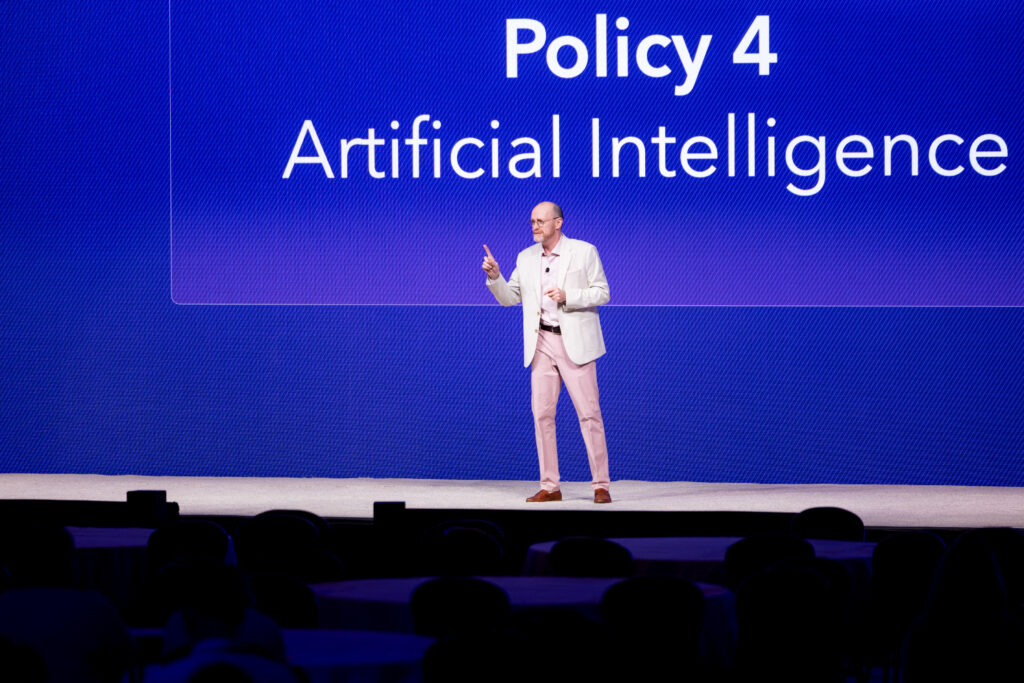Navigating U.S. healthcare policy in 2025 can seem challenging, but you’re not alone. With a new Congress and Administration, we’ll keep you on top of potential changes and opportunities to watch in healthcare.
In Brief: Federal Healthcare Policies Amid Political Shifts
- The Trump administration’s approach to decentralization allows agency leaders to prioritize and pursue policies independently, while states and courts are taking a more active role in healthcare policy.
- Rising medical costs and external factors like inflation and supply chain issues are increasing pressures, but there is room for innovation and improved experiences.
- Transparency and AI offer significant opportunities to cut costs and demonstrate support for consumers.
Despite the unfamiliar road ahead, there is a solid foundation of federal healthcare policies and programs that remain strong, including price transparency, the No Surprises Act, and policies on data, AI, and cybersecurity/privacy.
What 2025 Means for Core U.S. Healthcare Programs
Medicare Advantage (MA)
- CMS increased benchmark payments to MA insurers for 2026 by more than five percent.
- CMS Innovation Center’s (CMMI) MA payment models will focus on preventive services and value-based reimbursement.
- MA plans may face Congressional discussions and hearings about claims denials and use of prior authorization later in the legislative session.
Legal and Legislative Impacts on the Affordable Care Act (ACA)
- ACA is not facing serious repeal efforts.However, Trump administration is cutting the budget for ACA navigators and shortening enrollment periods.
- Congress deciding whether to continue Biden-era ACA subsidies.
- ACA enrollment may drop significantly in 2026 if subsidies are not continued.
Impact on Medicaid
- GOP Congress likely to make changes to Medicaid, shifting costs to states
- Expect changes to eligibility requirements and decrease in enrollment
Transparency in Coverage 2025
- President’s executive order on healthcare price transparency 2025 spurred new guidance and a Request for Information (RFI)
- Healthcare policy advisors are influencing focus and priorities
No Surprises Act in 2025
- Bipartisan support for No Surprises Act
- Further regulations unlikely, though agency/administration is working on IDR process improvement
- States addressing balance billing, particularly in ground ambulance space
Legal and Legislative Impact on ACA Policies
- U.S. Supreme Court considering ACA requirement for plans to cover preventive care at no cost to patients
- Congress’ budget discussions may impact federal fiscal responsibility under ACA’s Medicaid Expansion
Role of Artificial Intelligence in Healthcare Regulation
- Trump administration allowing commercial sector to lead on AI innovation through deregulation.
- States introducing AI legislation at a rapid pace
Implications for Cybersecurity/Privacy in Healthcare
- Proposed rule to modify HIPAA security rule unlikely to be finalized soon
- Reorganization of HHS Office of Civil Rights, regulating entity for HIPAA Privacy and Security
Stay informed
with Zelis Legislative Weekly newsletter
Want more of these types of insights? Stay informed on the latest healthcare policy updates by signing up for the Zelis Legislative Weekly newsletter.




